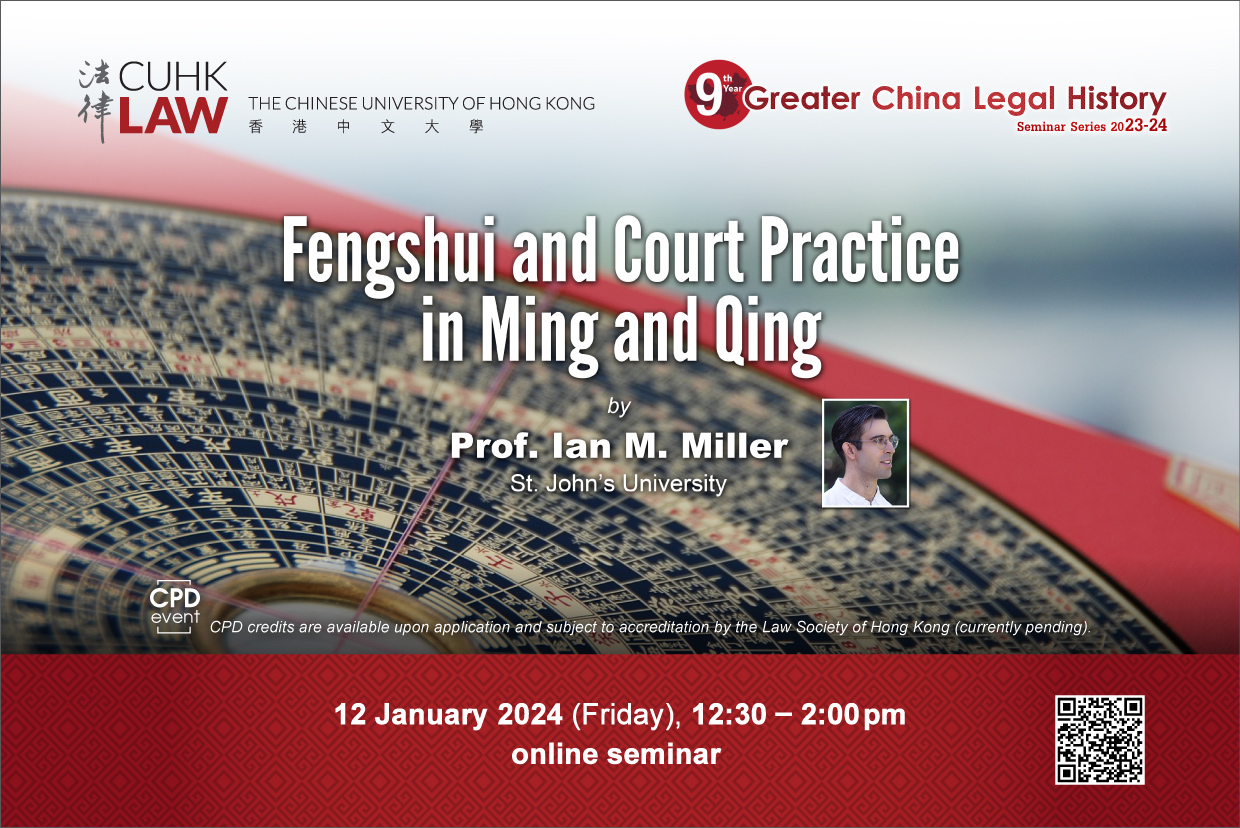Events
CUHK LAW Greater China Legal History Seminar Series – ‘Fengshui and Court Practice in Ming and Qing’ by Prof. Ian M. Miller (Online)
12 Jan 2024
12:30pm – 2:00pm
Online via ZOOM
Professor Ian M. Miller, St. John’s University, New York
Ian M. Miller is Associate Professor of History at St. John’s University in New York where he teaches East Asian history, world history, and environmental history. He is the author of Fir and Empire: The Transformation of Forests in Early Modern China (2020) and the co-editor of The Cultivated Forest: People and Woodlands in Asian History (2022), where he explores (among other topics) forestry contracts and their implications for our understanding of property rights, specialized expertise, and early securities markets. He is currently working on a monograph on graves and the emergence of kinship organizations, collective property, and environmental protection, tentatively titled Ancestral Shade: Kinship and Ecology in Southern China.
Professor Miller received his PhD in History and East Asian Languages from Harvard University in 2015. Between 2016 and 2018, he was a Program Fellow in Agrarian Studies at Yale University, and a Visiting Scholar at the Max Planck Center for the History of Science in Berlin. In 2021-22, Professor Miller received a fellowship from the National Endowment for the Humanities to begin work on Ancestral Shade.
law@cuhk.edu.hk
Sometime in the sixteenth century, two men surnamed Li and Chen, had a dispute over a small forest: Chen cut the trees and buried an ancestor there; Li claimed that Chen had violated his rights. At face value, this was a totally ordinary property dispute, but its resolution reveals something strange: neither man owned the hill, yet both were granted limited rights there. The case was resolved, not through the formal laws on household property, but through the logic of fengshui, a metaphysical geography that governed the placement of edifices in the landscape. More broadly, fengshui had a curious position in Ming and Qing law. In practice, fengshui was enormously important, factoring into an estimated 25% of local lawsuits. Institutionally, fengshui fell under the oversight of specialized officials, who were often called to consult on legal cases. But fengshui was never fully endorsed in formal law. This talk will explore some of the evidence for the emergence and perpetuation of fengshui in court practice.
Language: English
CPD credits are available upon application and subject to accreditation by the Law Society of Hong Kong (currently pending).


